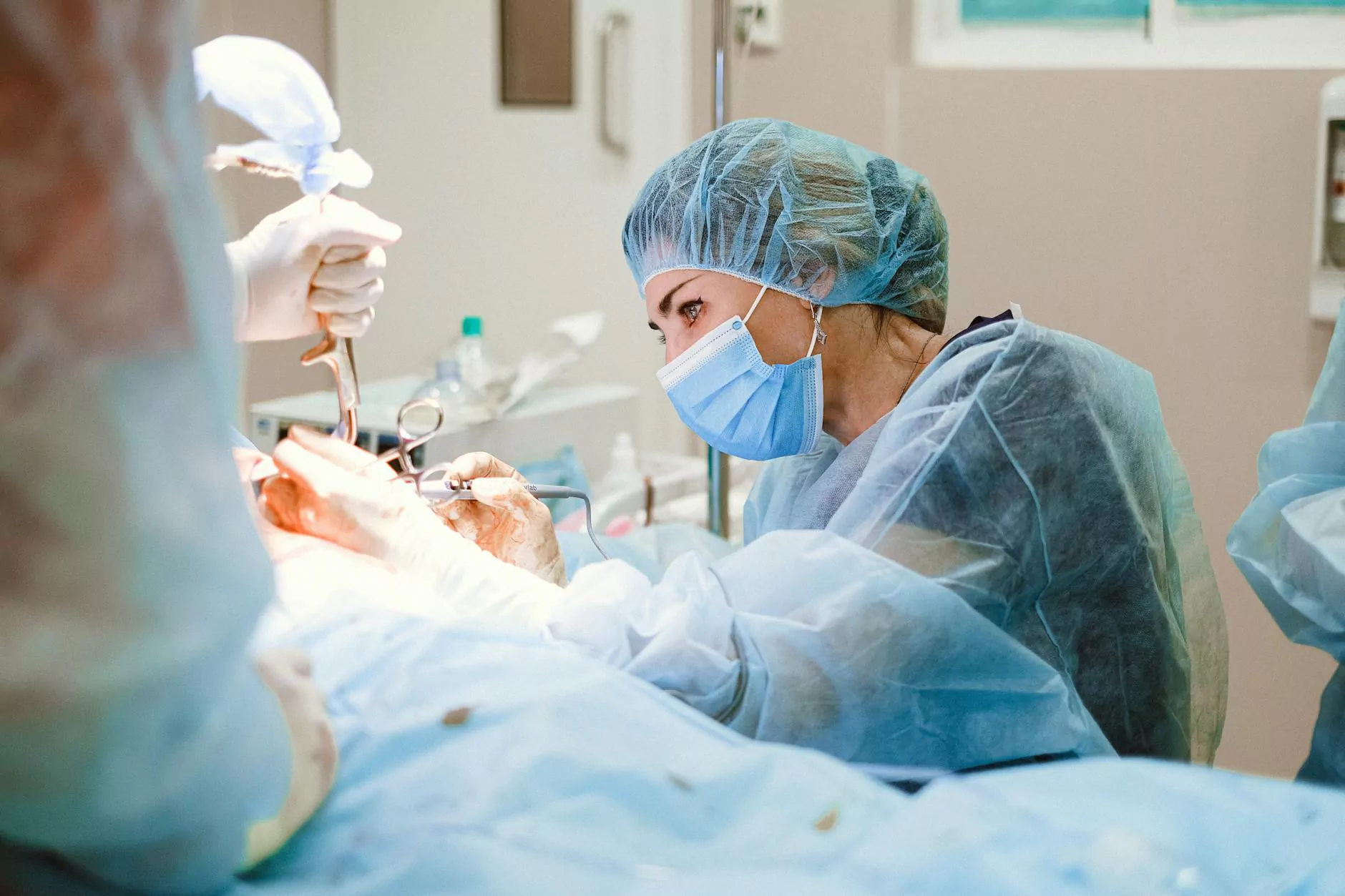Understanding Sleeve Gastrectomy Surgery: A Comprehensive Guide

Sleeve gastrectomy surgery is a popular bariatric procedure designed to help individuals struggling with obesity. This detailed article aims to provide an in-depth understanding of sleeve gastrectomy, covering everything from what the surgery entails to the long-term benefits and considerations involved. If you are exploring this option, this guide will serve as a valuable resource.
What is Sleeve Gastrectomy Surgery?
Sleeve gastrectomy is a surgical weight-loss procedure that involves the removal of a significant portion of the stomach, resulting in a tube-like structure resembling a banana or sleeve. This limits food intake and reduces hunger by altering gut hormones.
The Procedure Explained
During the sleeve gastrectomy surgery:
- The surgeon makes small incisions in the abdomen.
- Using laparoscopic techniques, they remove approximately 75-80% of the stomach.
- The remaining stomach is then shaped into a narrow sleeve.
- The procedure typically lasts between 1 to 2 hours.
Benefits of Sleeve Gastrectomy Surgery
There are numerous benefits associated with sleeve gastrectomy, making it an attractive option for many individuals. These include:
- Significant Weight Loss: Patients can expect to lose between 50 to 70% of their excess weight within 12 to 18 months post-surgery.
- Improved Health Conditions: Many patients experience relief from obesity-related conditions such as type 2 diabetes, hypertension, and sleep apnea.
- Enhanced Quality of Life: With weight loss, many individuals report improved self-esteem and a more active lifestyle.
- Minimal Impact on Digestion: Unlike other bariatric procedures, sleeve gastrectomy does not reroute the intestine, allowing for easier digestion.
Who is a Candidate for Sleeve Gastrectomy Surgery?
Not everyone is an ideal candidate for sleeve gastrectomy. Generally, candidates include:
- Individuals with a Body Mass Index (BMI) of 40 or higher.
- Individuals with a BMI of 35 or higher with obesity-related health conditions.
- Those who have tried and failed to lose weight through diet and exercise.
- Patients who are committed to making permanent lifestyle changes post-surgery.
Risks and Considerations
Like any surgical procedure, sleeve gastrectomy comes with risks. It is important to consider the following:
- Short-Term Risks: These can include complications from surgery such as infections, blood clots, and leaks in the stomach sleeve.
- Long-Term Risks: Potential issues may involve nutrient deficiencies and changes in bowel habits.
- Psychological Factors: Some patients may experience depression or anxiety post-surgery due to significant lifestyle changes.
Choosing the Right Surgeon and Facility
Choosing an experienced surgical team is crucial for the success of your sleeve gastrectomy:
- Research the credentials and experience of your surgeon.
- Look for facilities that are accredited for bariatric surgery.
- Consult previous patients for reviews on their experiences.
The Pre-operative Process
Preparing for sleeve gastrectomy involves several steps to ensure you are ready for the operation:
- Comprehensive Evaluation: This includes medical assessments to determine your suitability for surgery.
- Dietary Adjustments: A pre-operative diet may be prescribed to reduce liver size and prepare your body.
- Mental Health Assessment: Psychological evaluations are crucial to ensure emotional readiness for surgery.
The Post-operative Journey
After the surgery, the recovery process begins. Understanding what to expect is vital:
- Hospital Stay: Most patients stay in the hospital for 1 to 3 days for monitoring.
- Diet Progression: Post-operative diets generally start with liquids, progressing to pureed foods, and eventually to solid foods.
- Regular Follow-Ups: Continuous follow-up appointments are crucial for monitoring your health and weight loss progress.
Long-Term Lifestyle Changes
Success after sleeve gastrectomy depends on making significant lifestyle changes:
- Healthy Eating: Emphasizing balanced nutrition and portion control is critical.
- Regular Physical Activity: Establishing a consistent exercise routine is essential for maintaining weight loss.
- Support Systems: Joining support groups can provide motivation and encouragement throughout your journey.
Success Stories: Transformations Through Sleeve Gastrectomy Surgery
Many individuals have transformed their lives through sleeve gastrectomy. Here are a few inspiring success stories:
"After undergoing sleeve gastrectomy, I lost over 100 pounds. My energy levels skyrocketed, and I can now enjoy activities with my family that I couldn't before!" - Emily R.
"This surgery was a turning point for me. I no longer suffer from diabetes and have embraced a healthier lifestyle." - John D.
Choosing the Right Path: Is Sleeve Gastrectomy Right for You?
Deciding whether to pursue sleeve gastrectomy surgery is a personal decision that should involve thorough research, consultations with medical professionals, and consideration of your health goals. Understanding the procedure, benefits, risks, and the lifestyle changes required post-surgery is crucial for making an informed choice.
Conclusion
Sleeve gastrectomy surgery offers a proven solution for individuals struggling with obesity. With the right information, support, and commitment to a healthier lifestyle, you can embark on a successful journey towards significant weight loss and improved overall health. If you're considering this life-changing procedure, consult with experienced bariatric specialists to explore how sleeve gastrectomy can help you achieve your health objectives.
For more information on sleeve gastrectomy and other bariatric procedures, visit us at thewellcome.com.









